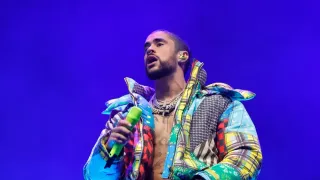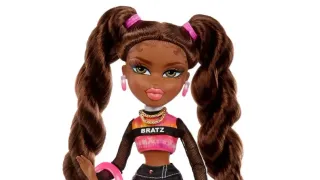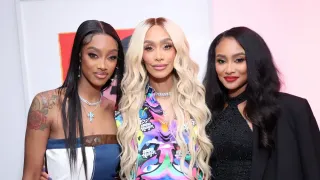
9 hours ago
Tessa Thompson Headlines Hollywood as Queer Lead in Nia DaCosta’s “Hedda”
READ TIME: 3 MIN.
Hollywood is abuzz this week as Tessa Thompson, a celebrated Emmy-nominated actor and vocal LGBTQ+ advocate, steps into the spotlight as the queer lead in Nia DaCosta’s “Hedda,” set for streaming release on Prime Video October 29, 2025. This film reimagines Henrik Ibsen’s classic play “Hedda Gabler,” moving the story to 1950s England and queering the narrative by centering Hedda’s relationship with her former lover Eileen, played by Nina Hoss. The movie’s release has become a focal point for discussions about LGBTQ+ visibility and storytelling in mainstream cinema.
The decision by director Nia DaCosta to reinterpret “Hedda Gabler” through a queer lens is both artistically bold and culturally significant. In this adaptation, Hedda Tesman and her husband George are newly married but emotionally distant, while Eileen, Hedda’s former lover, arrives at their home with her current girlfriend. The party setting becomes a crucible for exploring desire, freedom, and recognition for queer women whose stories have often been marginalized or coded in the history of film and theater.
Critics have praised DaCosta’s direction and Thompson’s performance for bringing “all of the delicious chaos” to the surface, while also providing a “cry of anger, a cry of sadness, a cry for recognition and freedom” that resonates with LGBTQ+ audiences and allies alike.
The premiere of “Hedda” comes during LGBTQ+ History Month, a time when Hollywood and global audiences reflect on progress in queer representation. The film’s release is highlighted across major LGBTQ+ media outlets, with reviewers noting its importance as a mainstream project featuring a queer woman of color in a leading role. The intersectionality of Thompson’s casting—she is openly bisexual and has often spoken about the need for greater diversity on screen—adds further dimension to the film’s cultural impact.
Streaming platforms have increasingly embraced queer content, with “Hedda” joining a slate of October releases that center LGBTQ+ stories in various genres, from rom-coms to horror and drama. This trend reflects both audience demand and the creative ambitions of filmmakers seeking to move beyond tokenism toward authentic, multidimensional queer characters.
The LGBTQ+ community has responded enthusiastically to the announcement and early reviews of “Hedda.” Social media platforms, including Instagram: @PrideCampaign and TikTok: @qnewstonight, have seen surges in discussion about the film’s significance, with many users emphasizing the importance of seeing queer love stories portrayed by actors who share those identities themselves. Community leaders and advocacy organizations such as The Trevor Project have also highlighted the film’s positive message about self-acceptance and the power of representation in combating stigma and isolation.
Tessa Thompson herself has spoken in recent interviews about her commitment to LGBTQ+ advocacy, emphasizing that “telling queer stories with truth and complexity is essential—not just for those who see themselves reflected, but for everyone who wants a more just and empathetic world”.
The release of “Hedda” is part of a broader shift in Hollywood, with a record number of celebrities coming out publicly in 2025 and an increasing number of films and television series featuring LGBTQ+ leads. Industry insiders note that while progress has been made, significant work remains to ensure that queer and transgender people are represented both in front of and behind the camera.
As Hollywood continues to evolve, the success and visibility of “Hedda” serve as a powerful reminder of the importance of inclusion and authenticity in storytelling. The film’s release is a milestone not just for Tessa Thompson and Nia DaCosta, but for all LGBTQ+ people who seek to see their lives reflected on screen in all their complexity and beauty. Industry professionals and community advocates hope that “Hedda” will inspire further investment in queer projects and encourage more actors, directors, and writers to bring their full selves to their work.






